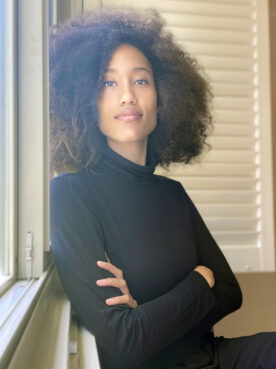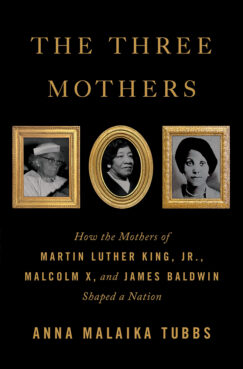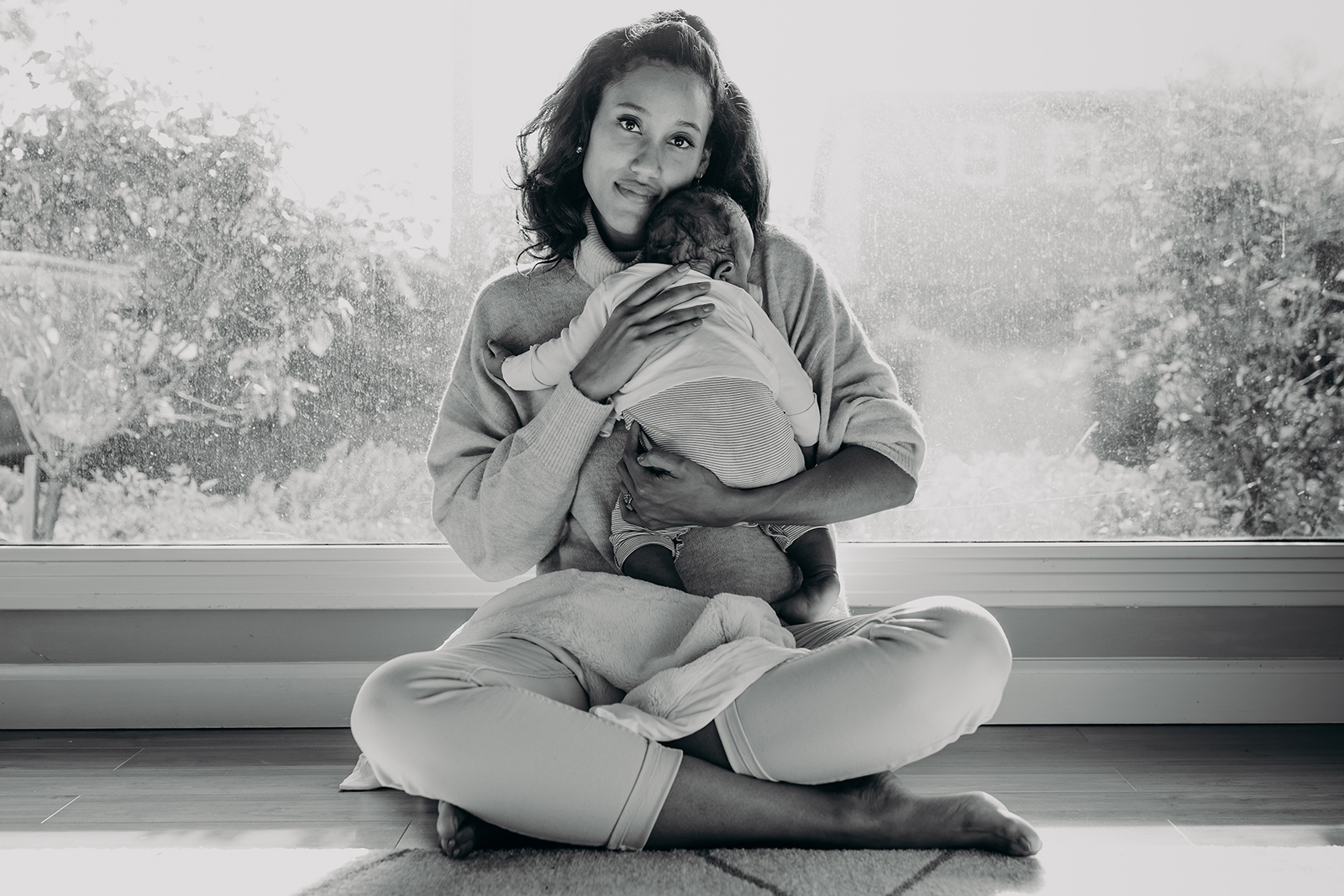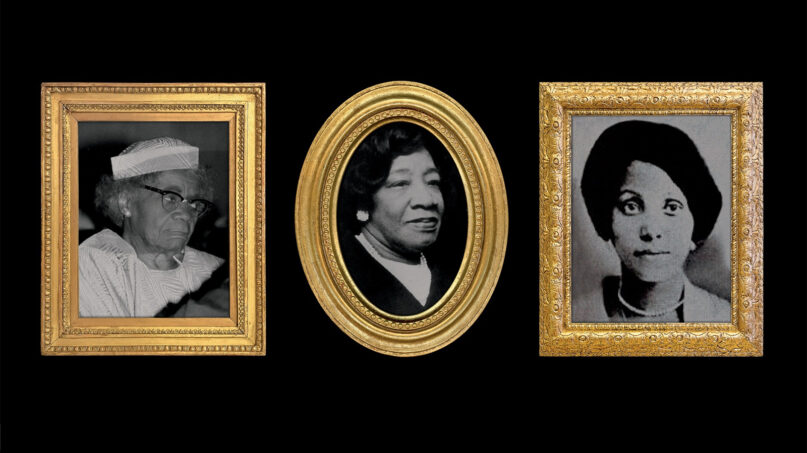(RNS) — Martin Luther King Jr., Malcolm X and James Baldwin are three of the most famous and commonly invoked leaders for civil rights and Black liberation. But where did they come from?
Or, more specifically, who birthed them, influenced them and guided them on the path that led them to become so influential?
Author Anna Malaika Tubbs decided to find out and has revealed her research in the new book “The Three Mothers: How the Mothers of Martin Luther King Jr., Malcolm X, and James Baldwin Shaped a Nation.”
“These mothers were all born within six years of each other, and their famous sons were born within five years of each other,” said Tubbs, a Ph.D. candidate at the University of Cambridge, whose book will be released Feb. 2. “I could talk about both the similarities and the differences in their experiences of Black womanhood.”
RELATED: Book: How Martin Luther King Jr. used the pulpit to ‘redeem’ America’s soul

Anna Malaika Tubbs. Courtesy photo
Her book chronicles motherhood through the lenses of Alberta King, Louise Little and Berdis Baldwin and provides little-known details about their lives — details of faith, discipline and sacrifice.
Tubbs, who is 28 and attends a nondenominational Christian church in California, spoke with Religion News Service about the beliefs and lessons these three mothers shared with their sons and how that influenced the leaders they would become and how studying them shaped Tubbs, too, as she began to experience motherhood.
The interview has been edited for length and clarity.
Why did you decide to write about these three women at this time?
These three mothers, I thought, represented the beautiful diversity and nuance of the Black womanhood experience in the United States. Their sons are so often put in conversation with each other. I thought it added a really beautiful layer to bring these three mothers to the forefront of the story.
You described the Littles, Kings and Baldwins as families who “made decisions based on their Christian faith.” How did those faith connections play a role in the way these three mothers raised and supported their now-famous sons?
Religion, of course, has been crucial to all of us as a Black community in the United States, because the church has offered this society within a society where we had more rights, where we could organize, where we could help each other with each others’ needs.
And so for all three of the mothers, that was the crucial part of their experience because all of their husbands were also Baptist preachers. Baldwin’s stepdad was known to be more angry and felt his religion was all about vilifying and castigating the “white devil,” as he put it. We see with Martin Luther King Sr., he joins Alberta’s parents as well as her in their belief that faith was not faith without social justice, and that needed to be a crucial part of any faith organization. And then what we see with Louise Little, although her husband was a Baptist preacher, she actually did not prescribe to any religion. She was much more spiritual. She believed you could learn from all different kinds of religions, but it was important to have a connection with God.
As we approach the holiday honoring the Rev. Martin Luther King Jr., can you talk about how, despite what you call her “unwavering faith,” Alberta King lived with abiding fear about his safety?

“The Three Mothers: How the Mothers of Martin Luther King Jr., Malcolm X, and James Baldwin Shaped a Nation” by Anna Malaika Tubbs. Courtesy image
Alberta’s a perfect example of a woman who believed in God’s plan for herself and for her children. But we’re all flawed believers as well, (and) still have human fears and real fears of losing those who we love. And even if we believe the plan is right and we think things are going according to it, it still can cause us pain to lose those we do not want to.
King’s mother held prominent roles at Atlanta’s Ebenezer Baptist Church, including leading its famous choir and playing its organ at which she ended up being killed. Now the church is led by the Rev. Raphael Warnock who has just been elected to the U.S. Senate. Do you connect her work there in any way to this latest piece of history for that congregation?
Absolutely. I think any work Alberta, but also her parents, did at Ebenezer Baptist connects to its history now. When her father, Rev. (Adam Daniel) Williams took over the church, it was only a congregation of about 17 people. And from there he transformed it into one of the most important churches in the South for civil rights. He and his wife advocated for the first public Black high school in Atlanta. They were some of the first members of the NAACP. So all of the work we see after that with Rev. Martin Luther King Sr., as well as Rev. Martin Luther King Jr., as well as his brother (Alfred Daniel, or A.D.), when they were reverends at the church, all connected to achieving social justice on earth in the way God intended for all of us to be seen with human dignity and worth.
RELATED: Sex and ‘church ladies’: True-to-life secrets beyond Black church pews
You noted Louise Little’s religious beliefs prompted her to prohibit her children from eating pork and rabbit, and she was a follower of Universal Negro Improvement Association founder Marcus Garvey. Do you think those lessons through her may have helped propel her son to eventually join the Nation of Islam and lead it?
One hundred percent. And in the book I’m making really direct connections between what she believed as a Garveyist and what Malcolm X believed as a member and a leader of the Nation of Islam. There are letters where Malcolm X writes to his brother, when he’s thinking about converting to the Nation, and says his mother was the one who taught him Islam from the beginning.
Berdis Baldwin urged her son James to visit his stepfather, whom he had grown to hate for his abusive ways, in the hospital shortly before his death. What did that say about the practice of his mother’s faith?
Her faith was entirely about love and forgiveness, no matter what. If you’re looking for an example of a servant of God who believes that no matter what people do to you, you always show the love and the forgiveness God would show us, that was Berdis through and through. No matter how much pain her husband caused her, or her children, she believed still he was deserving of forgiveness.
You noted at the end of your book that you compiled these stories without, of course, the benefit of interviewing these three women. What would you have asked each of them had you had the opportunity?
I would’ve wanted to know even more about their lives before they met their husbands. It was so hard to find details about their lives as young girls, as teenagers. No one really kept record of their lives until the men entered, which I think is just so sad. And even the experience of when they had their children and their labors and all of these things that are really crucial parts of their journey.

Anna Malaika Tubbs with her son. Photo by Shannon Rock, Preserve Studio
You also mentioned you prayed to God for the protection of your son and yourself when you learned you were pregnant. As a relatively new mother, what lessons of faith do you apply, personally, from what you’ve learned about these three women?
It’s been such an incredible guide for me to be writing about these three moms and to be really thinking about the ways in which Black mothers have redefined the role of motherhood. It allows me to be a mom who sees motherhood in this powerful, liberatory, creative light. I raise my son with that vision of, I have influence, I matter as a mother, and my son and his life matter in this world, and he’s going to join me in helping to transform it. And I just think that’s really inspiring. I think so many moms aren’t given the opportunity to see ourselves in that powerful role, and it affects the way we are able to parent.





